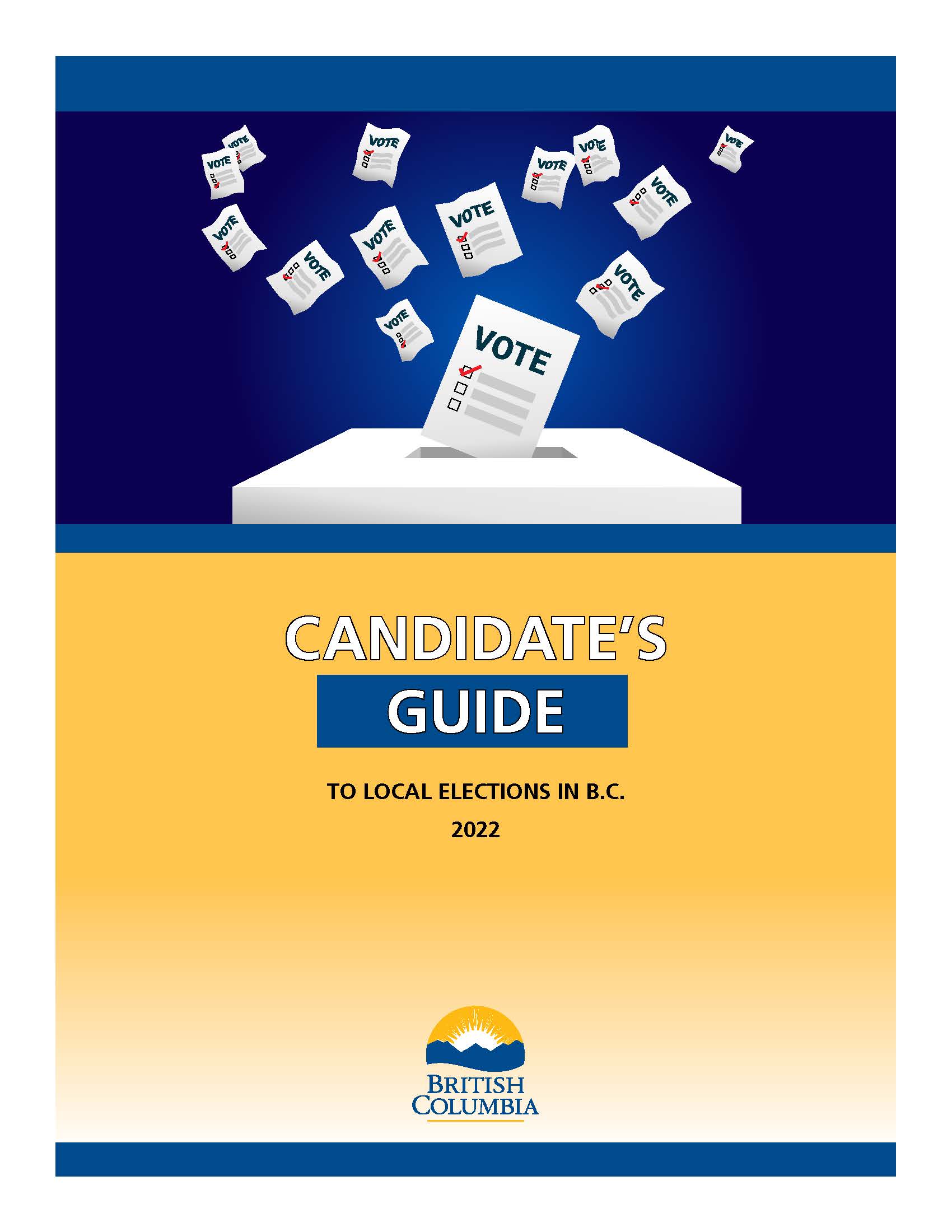Local government by-elections
By-elections in B.C. are held between general local elections to fill a vacancy on a municipal council or regional district board.
By-elections generally occur as the result of a vacancy due to the death, disqualification or resignation of a locally-elected official. As is the case with general local elections, by-elections must be held on a Saturday.
A local government must appoint a Chief Election Officer for the by-election as soon as practicable (for example, as soon as reasonably possible) after a vacancy occurs. The Chief Election Officer must set the date for general voting for a Saturday no later than 80 days after they were appointed by council or the regional district board.
The rules regarding by-elections are for the most part the same as those for general local elections—in other words, the same rules typically apply for matters such as the roles and responsibilities of the local government and Elections BC, elections administration, voter eligibility and voting, qualifications for running for office and campaign finance and advertising rules.
Running for local office in a by-election
Anyone meeting the eligibility requirements for a candidate, including current members of the local government, are eligible to fill the vacant position through a by-election. The council or regional district board member must resign their current position within 14 days of the Chief Election Officer’s appointment in order to run in the by-election.
By-election administration
Each municipal council and regional district board appoints a Chief Election Officer to ensure by-elections are run in accordance with the Local Government Act, Vancouver Charter (in the City of Vancouver), Community Charter, School Act, Offence Act and the local government’s election bylaw.
The local government must also notify the Minister responsible for local government in B.C. and the B.C. Chief Electoral Officer (Elections BC) of the by-election as soon as practical after the vacancy occurs. The Chief Election Officer appointed to administer the election may be a senior local government employee, such as a corporate officer, or a private contractor hired to conduct the election on the local government’s behalf.
By-elections are administered similarly to general local elections and there are several required notifications (e.g. notice of nomination period, notice of advance voting) that must occur during the by-election process. Given the specific timing of these notifications, municipal councils and regional district boards need to take into account the timing of the statutory requirements and have a plan in place prior to appointing the Chief Election Officer—or they may not be able to meet all the statutory requirements before general voting day.
- Use the By-election Date Calculator to determine key by-election dates (XLSX, 99KB)
- Learn more about general local elections administration
- Learn more about the general local elections process
Exceptions to holding a by-election
A municipality or regional district may choose not to hold a by-election to fill a vacancy if the vacancy occurs after June 1 in the year of a general local election that will fill the vacant office.
Additionally, a municipal council may also decide that a by-election will not to be held if all the following circumstances apply, the:
- Vacancy occurs after January 1 in the year of a general local election that will fill the office
- Vacancy is not in an office elected on the basis of a neighbourhood constituency and
- Number of remaining council members is at least one greater than the quorum for the council, as set under section 129 (1) of the Community Charter
Regional district board vacancies
Given that regional district boards are comprised of appointed municipal directors and elected electoral area directors, the way in which vacancies are filled between general local elections will differ.
Municipal director
Municipal councils appoint one or more representatives (for example, the mayor) to the regional district board following general local elections. Should a municipal director vacancy occur, due to their resignation from the regional district board or if their seat on municipal council becomes vacant due to their resignation, disqualification or death, the municipal council would appoint another member of council as the municipal director on the regional district board.
Electoral area directors
Electoral area directors are directly elected to the regional district board every four years during general local elections. An electoral area director represents a specific rural area within the regional district and given their representation is directly connected to that rural area, an election is required as soon as practicable when a vacancy occurs due to the electoral area director’s resignation, disqualification or death.
Each regional district electoral area director must appoint an alternate to carry out their responsibilities in their absence—often due to an illness. An alternate electoral area director may act in place of an electoral area director who has resigned, been disqualified or has died until such time as a by-election to fill the vacancy can be held. Having the alternate area director in place is not a substitute for holding a by-election.
By-election rules
The rules regarding by-elections are for the most part the same as those for general local elections—everything from elections administration, to voter eligibility to election offences, to election advertising, to elector organizations and campaign financing disclosure.
- Learn more about elector organizations and candidate endorsement
- Learn more about general local elections and campaign financing offences and penalties
Local elections legislation
Learn more about the general local election process and being a candidate for locally elected office.
Guidance and resources
Elections BC
Contact information
Contact us if you have legislative questions about by-elections.
250 387-4020
1 800 663-7867


